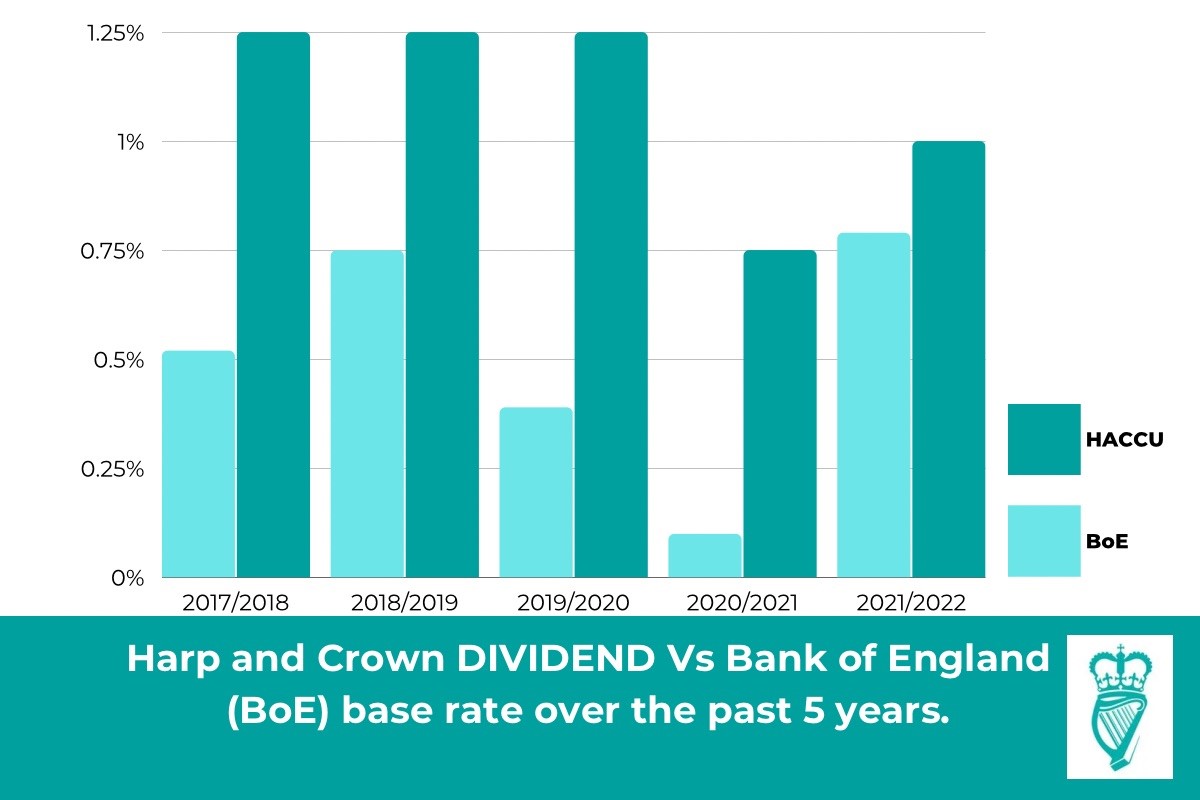Home>Finance>What Is A Good Total Annual Income For Credit Card


Finance
What Is A Good Total Annual Income For Credit Card
Published: October 26, 2023
Looking for the ideal credit card income? Discover what constitutes a good total annual income in the world of finance and unlock better financial opportunities.
(Many of the links in this article redirect to a specific reviewed product. Your purchase of these products through affiliate links helps to generate commission for LiveWell, at no extra cost. Learn more)
Table of Contents
- Introduction
- Factors to Consider When Determining a Good Total Annual Income for a Credit Card
- Average Income Requirements for Different Types of Credit Cards
- Benefits of Earning a Higher Total Annual Income for Credit Card Eligibility
- Strategies to Increase Your Total Annual Income for Better Credit Card Options
- Conclusion
Introduction
When it comes to credit cards, one crucial factor that determines your eligibility and the type of credit card you can obtain is your total annual income. Your income plays a significant role in establishing your creditworthiness and ability to manage credit. It indicates your ability to repay debts and influences the credit limit you can access.
But what exactly is considered a good total annual income for a credit card? It’s important to understand the factors that affect this determination. Different credit cards have varying income requirements, and there are several factors you should consider when evaluating what constitutes a good income level.
In this article, we will explore the various factors that come into play when determining the ideal total annual income for a credit card. We will also discuss the average income requirements for different types of credit cards and the benefits of earning a higher income for credit card eligibility. Lastly, we will provide strategies to help you increase your total annual income to qualify for better credit card options.
Understanding the relationship between your income and credit card eligibility is important for making informed financial decisions. So let’s dive into the details and gain a better understanding of what constitutes a good total annual income for a credit card.
Factors to Consider When Determining a Good Total Annual Income for a Credit Card
When evaluating what constitutes a good total annual income for a credit card, several factors should be taken into consideration. These factors help credit card issuers assess your ability to make timely payments and manage credit responsibly. Here are some key factors to consider:
- Credit Card Type: The type of credit card you are interested in will directly impact the income requirements. Basic credit cards typically have lower income requirements compared to premium or rewards cards. For example, a basic credit card may require an annual income of $30,000, while a premium rewards card may require an income of $75,000 or more.
- Credit Limit: Your total annual income also plays a role in determining the credit limit you are eligible for. Credit card issuers use your income as a measure of your ability to handle the repayments for the credit limit extended to you. Generally, the higher your income, the higher your credit limit will be.
- Debt-to-Income Ratio: Credit card issuers consider your debt-to-income ratio, which is the percentage of your monthly income that goes towards paying off debts. A lower debt-to-income ratio indicates a stronger financial position and may result in more favorable credit card offers.
- Credit Score: While your total annual income is an important factor, credit card issuers also consider your credit score when determining your creditworthiness. A higher income combined with a good credit score can enhance your chances of being approved for credit cards with attractive features and rewards.
- Monthly Expenses: It’s important to assess your monthly expenses in relation to your income. Credit card issuers want assurance that you have sufficient income to cover your living expenses and make credit card payments comfortably.
- Employment Stability: Stability in employment can be an influencing factor for credit card issuers. A consistent and stable employment history indicates a reliable and steady stream of income, which boosts credit card eligibility.
- Additional Sources of Income: If you have additional sources of income, such as rental income or freelance work, it’s essential to include these when calculating your total annual income. This can help increase your chances of meeting the income requirements for certain credit cards.
Remember, each credit card issuer may have different criteria when it comes to income requirements. It’s crucial to review the specific terms and conditions of the credit card you are interested in to understand their income guidelines.
Considering these factors can help you determine a good total annual income for a credit card that aligns with your financial situation and goals.
Average Income Requirements for Different Types of Credit Cards
When applying for a credit card, it’s important to understand the average income requirements associated with different types of credit cards. Income requirements can vary significantly based on the card’s features, benefits, and reward programs. Here is a breakdown of the average income requirements for different types of credit cards:
- Basic Credit Cards: Basic credit cards are entry-level cards with minimal features and benefits. They typically have lower income requirements, ranging from $15,000 to $30,000 per year. These cards are suitable for individuals who are new to credit or have a modest income.
- Rewards Credit Cards: Rewards credit cards offer perks such as cashback, travel rewards, or points for purchases. These cards usually have higher income requirements, typically ranging from $30,000 to $50,000 per year. Higher-tier rewards cards with premium benefits may require incomes of $50,000 or more.
- Secured Credit Cards: Secured credit cards are designed for individuals with limited or poor credit history. These cards require a security deposit as collateral. Income requirements for secured cards are typically lower, ranging from $10,000 to $20,000 per year.
- Business Credit Cards: Business credit cards are tailored for small business owners and entrepreneurs. The income requirements for business credit cards vary depending on the issuer and the credit limit desired. Typically, the income requirements range from $35,000 to $100,000 or more, depending on the size and type of business.
- Premium Credit Cards: Premium credit cards usually offer extensive travel benefits, airport lounge access, concierge service, and generous reward programs. These cards cater to individuals with higher incomes and excellent credit scores. The income requirements for premium cards can range from $75,000 to $150,000 or more per year.
It’s important to note that these income requirements are general guidelines, and credit card issuers may have stricter or more lenient criteria based on various factors.
When selecting a credit card, it’s essential to consider your income level to ensure you can comfortably meet the income requirements. Applying for a credit card that exceeds your income level may result in rejection or potential financial strain.
Before applying for a credit card, carefully review the income requirements specified by the card issuer to determine whether you meet their criteria. Remember that income requirements can vary depending on the issuer, so it’s beneficial to compare different credit card options to find one that aligns with your financial situation.
Benefits of Earning a Higher Total Annual Income for Credit Card Eligibility
Earning a higher total annual income not only provides you with more financial stability but also comes with several benefits when it comes to credit card eligibility. Here are some advantages of having a higher income when applying for a credit card:
- Access to Premium Cards: With a higher income, you qualify for premium credit cards that offer exclusive perks, such as travel benefits, airport lounge access, concierge service, and enhanced rewards programs. These cards provide a higher level of luxury and convenience compared to basic credit cards.
- Increase in Credit Limit: Credit card issuers often consider your income when determining the credit limit they can offer you. A higher income instills confidence in lenders that you can handle larger credit limits responsibly. This enables you to make bigger purchases and have greater flexibility in managing your finances.
- Better Reward Programs: Credit cards with higher income requirements often come with more generous reward programs, allowing you to earn more points, cashback, or travel rewards for your spending. These rewards can be redeemed for various benefits, such as free flights, hotel stays, or even cash back into your account.
- Higher Approval Chances: Having a higher income increases your chances of credit card approval. Lenders see individuals with higher incomes as less risky borrowers who are more likely to make timely payments. This can enhance your creditworthiness and improve your likelihood of being approved for the credit card you desire.
- Favorable Interest Rates: A higher income can also help you secure credit cards with lower interest rates. Lenders offer better interest rates to individuals with higher incomes and better credit scores to reward their financial stability and reliability. This can help you save money on interest charges when carrying a balance on your credit card.
- Enhanced Financial Flexibility: Earning a higher income allows you to have greater financial flexibility and the ability to manage credit more effectively. You can comfortably meet the monthly payments and enjoy the perks and benefits that come with premium credit cards. This can significantly enhance your overall financial well-being.
Earning a higher total annual income opens up doors to a wider range of credit card options, offering you more choices and attractive features. However, it’s crucial to remember that while a higher income may provide these benefits, responsible financial habits and maintaining good credit are equally important in maximizing the advantages of credit card ownership.
Now that we’ve examined the benefits of a higher income, let’s explore some strategies to increase your total annual income to qualify for better credit card options.
Strategies to Increase Your Total Annual Income for Better Credit Card Options
If you aspire to qualify for better credit card options with higher income requirements, there are several strategies you can employ to increase your total annual income. Here are some effective strategies to consider:
- Advance in Your Career: Invest in your professional development and seek opportunities for growth within your field. Look for promotions or higher-paying positions that align with your skills and experience. Advancing in your career can result in a significant increase in your annual income.
- Earn Additional Certifications: Obtain certifications or qualifications that can enhance your marketability and increase your earning potential. These additional credentials can make you stand out in your industry, leading to higher-paying job opportunities.
- Explore Freelancing or Consulting: Consider taking on freelance projects or consulting work in your area of expertise. This allows you to leverage your skills and earn extra income on a per-project or per-hour basis. Many professionals find success and increased earning potential in the gig economy.
- Invest in Education: Pursue higher education or specialized training that can lead to better career prospects and higher salaries. Acquiring advanced degrees or gaining specialized knowledge can position you for higher-paying job opportunities in your field.
- Start a Side Business: Explore entrepreneurial opportunities and start a side business. This can be an additional source of income that has the potential to grow and supplement your yearly earnings. Choose a business venture that aligns with your skills and interests to increase your chances of success.
- Invest Wisely: Make informed investment decisions to grow your wealth and generate passive income. Consider diversifying your investments across different asset classes such as stocks, real estate, or mutual funds. Consult with a financial advisor to develop an investment strategy that aligns with your financial goals.
- Negotiate a Salary Increase: If you’re currently employed, gather data to support your request for a salary increase. Highlight your accomplishments, contributions, and additional responsibilities you’ve taken on. Present this information to your employer during a negotiation to secure a higher salary.
- Expand Your Professional Network: Networking can lead to new opportunities and connections that can pave the way for career growth and higher income. Attend industry events, join professional organizations, and connect with others in your field to expand your professional network.
Remember, increasing your total annual income takes time and effort. It requires a combination of personal and professional development, along with strategic financial planning. Persistence, dedication, and continuous learning will help you achieve your goal of qualifying for better credit card options with higher income requirements.
By employing these strategies, you can enhance your earning potential and open up a world of possibilities when it comes to credit card eligibility and the financial opportunities that come with it.
Conclusion
Understanding the factors that contribute to a good total annual income for credit card eligibility is crucial for making informed financial decisions. Your income plays a significant role in determining the type of credit card you can obtain, the credit limit you can access, and the benefits and rewards you can enjoy.
In this article, we explored the various factors to consider when determining a good total annual income for a credit card. We discussed the average income requirements for different types of credit cards, highlighting how income levels vary depending on the features and benefits of the card. We also delved into the benefits of earning a higher total annual income, such as accessing premium cards, increasing credit limits, and enjoying more favorable interest rates and reward programs.
Moreover, we provided strategies to help you increase your total annual income for better credit card options. These strategies include advancing in your career, earning additional certifications, exploring freelance or consulting work, investing in education, starting a side business, making wise investments, negotiating a salary increase, and expanding your professional network.
Remember, the pursuit of a higher income requires persistence, continuous learning, and proactive financial planning. While a higher income opens opportunities for better credit card options, it is equally important to practice responsible financial habits and maintain good credit to fully leverage the advantages of credit card ownership.
By incorporating these strategies and maintaining wise financial management, you can enhance your total annual income, improve your creditworthiness, and gain access to credit cards with attractive features and rewards that align with your financial goals.
So, take the necessary steps to increase your income, explore credit card options that suit your needs, and make the most of your financial opportunities.














